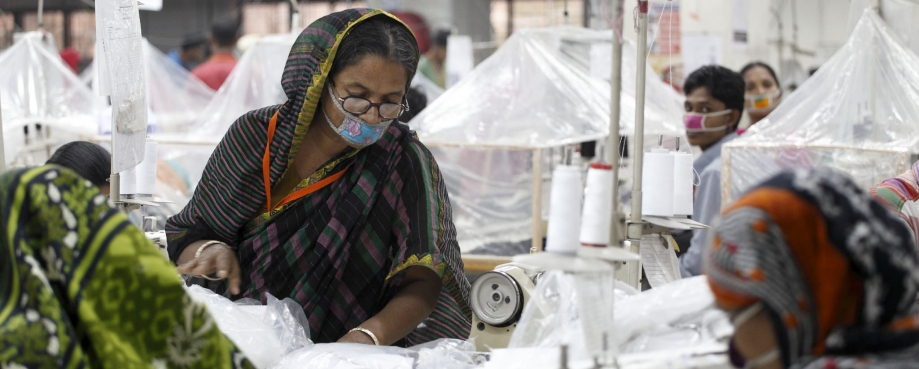
Today marks five years since the appalling Rana Plaza factory building collapse where 1,134 workers lost their lives. Laura Keely asks, what have we learnt?
The Rana Plaza tragedy cast a spotlight on Bangladesh’s garment sector and, as the world’s second largest exporter of ready-made garments, the international brands sourcing from the country..
It is a desperate reminder of the importance of upholding the international labour laws enshrined in ETI’s Base Code of Labour standards.
Increased awareness
Following the disaster, awareness of health and safety in the country’s garment industry increased dramatically.
Looking at the two major safety initiatives set up in the disaster’s aftermath, the Bangladesh Accord has helped to address 130,000 safety problems in 1,600 factories, while the Alliance for Bangladesh Worker Safety reports that 85% of all safety upgrades have now been completed.
But, other labour rights issues are in urgent need of attention.
Bangladesh’s ready-made garment industry employs nearly four million workers, of whom 65% are women. Last year, ready-made garment exports were expected to earn $34bn.
Despite this, the sector is notorious for its low wages, excessive overtime and workplace harassment.
Underlying this, is the inability of the workforce to represent themselves, articulate their needs and defend their rights.
Giving workers a voice
As Bangladesh’s garment sector continues to grow, the challenge now is to make sure workers have a voice to raise their concerns, not just relating to safety, but also issues such as discrimination, harassment and poor conditions.
That’s why ETI’s Bangladesh programme has been working to establish workplace committees and train workers on their rights, including the freedom to organise, collectively bargain and engage in social dialogue.
Brands have a crucial role to play too.
In many cases, brands sourcing from the Rana Plaza factory were only identified after investigators found their garments amongst the rubble.
The complexity of global supply chains too often results in a profound lack of visibility. It has allowed poor working conditions to remain undetected and unchallenged, and systems of accountability to remain weak.
Momentum for transparency
Against the backdrop of Rana Plaza, momentum for greater transparency has gathered pace.
Businesses are increasingly realising the commercial value of transparency, backed by growing evidence that it is linked to improved financial, social and ethical performance.
Transparency needs to become embedded in how global supply chains operate, enabling companies to build trust with their suppliers and drive up labour standards.
That’s why we are pleased to see four ETI members – C&A, Gap, H&M, and M&S – amongst the top ten performers in Fashion Revolution’s Fashion Transparency Index.
Published earlier this week, the Index ranks 150 global brands and retailers on their social and environmental policies, practices and impact.
Recognise and acknowledge progress
Few will deny that more progress is needed.
Yet even as we look to these challenges, it is crucial to recognise and acknowledge the monumental overhaul that has taken place over the last five years.
